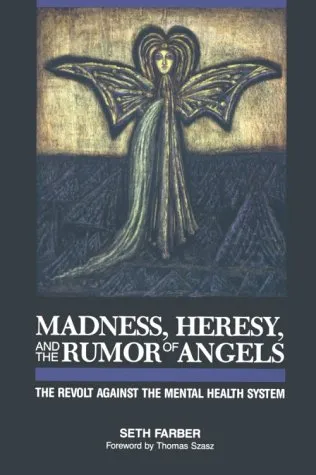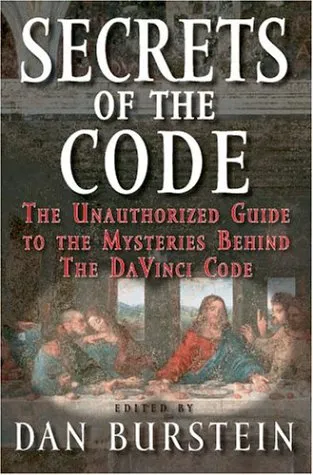Madness, Heresy and The Rumor of Angels
4.3
Reviews from our users

You Can Ask your questions from this book's AI after Login
Each download or ask from book AI costs 2 points. To earn more free points, please visit the Points Guide Page and complete some valuable actions.Related Refrences:
Welcome to an exploration of "Madness, Heresy and The Rumor of Angels," a compelling narrative that delves deep into the intersections of psychology, spirituality, and modern society. In this book, I, Seth Farber, seek to challenge prevailing conventions and inspire readers to redefine their understanding of sanity and divine inspiration.
Detailed Summary of the Book
The book is a profound philosophical and sociological journey that grapples with the notions of madness, societal norms, and spirituality. It critiques the medicalization of mental illness and posits that what society often labels as "madness" might actually harbor elements of profound spiritual insight. Drawing parallels with historical heretics and visionaries, it suggests that the prism through which we view mental divergence might be too narrow and constricting.
Structured in a series of insightful discourses, the book challenges the reader to consider the so-called "heretics" who have been catalysts for spiritual and societal evolution. These individuals often possess a visionary quality that can be misinterpreted through the constraints of conventional psychiatry. The work further contends that these misunderstood "heresies" are akin to rumors of a deeper spiritual reality — what Peter L. Berger referred to as the "Rumors of Angels."
The narrative unfolds through a critical analysis of historical and contemporary figures who walked the fine line between sanity and madness, before arriving at its thesis: society must reassess its perception of mental illness and accept the spiritual dimensions interwoven within the human experience.
Key Takeaways
- The conventional understanding of mental illnesses oversimplifies complex spiritual and cognitive experiences.
- Historical figures often ostracized for their "madness" can offer vital insights into the nature of spirituality.
- The need to integrate spiritual sensibilities into psychiatric practice is paramount.
- Re-evaluating the boundary between madness and visionary experience can lead to a more humane and enriched society.
Famous Quotes from the Book
"Madness is not just a state of mind — it is a rebellion against the despotism of common sense."
"The whispers of angels are often mistaken for ravings of insanity in a world deafened by noise."
"In the heretic's madness lies the seed of a future liberation."
Why This Book Matters
"Madness, Heresy and The Rumor of Angels" is not just a book about redefining madness; it is a call to humanize the misunderstood. In a world where the standard pathways of understanding often overshadow alternative forms of knowledge, this book argues for a paradigm shift. It highlights the importance of embracing a holistic approach to mental health, one which harmonizes psychiatric practice with spiritual awareness.
By addressing these intersections, the book contributes critically to discussions around mental health reform and aims to rekindle interest in the spiritual dimensions of human existence. This book is especially relevant in contemporary times when mental health advocacy is gaining momentum, urging a reconsideration of the rigid frameworks that govern our understanding of the mind.
For readers interested in psychology, spirituality, and social criticism, this work provides a comprehensive perspective on the necessity for embracing spiritual awareness in the therapeutic process. It is a vital text for anyone looking to engage with reformed ideas about human consciousness and mental diversity.
Free Direct Download
You Can Download this book after Login
Accessing books through legal platforms and public libraries not only supports the rights of authors and publishers but also contributes to the sustainability of reading culture. Before downloading, please take a moment to consider these options.
Find this book on other platforms:
WorldCat helps you find books in libraries worldwide.
See ratings, reviews, and discussions on Goodreads.
Find and buy rare or used books on AbeBooks.
1376
بازدید4.3
امتیاز50
نظر98%
رضایتReviews:
4.3
Based on 0 users review
"کیفیت چاپ عالی بود، خیلی راضیام"
Questions & Answers
Ask questions about this book or help others by answering
No questions yet. Be the first to ask!







